

From Fees to Freedom: Richr’s Game-Changing Wealth Strategy in Real Estate, by Jason Rubin, and Glenn Orgin
Have you ever thought about why it costs 6% to…
January 9, 2024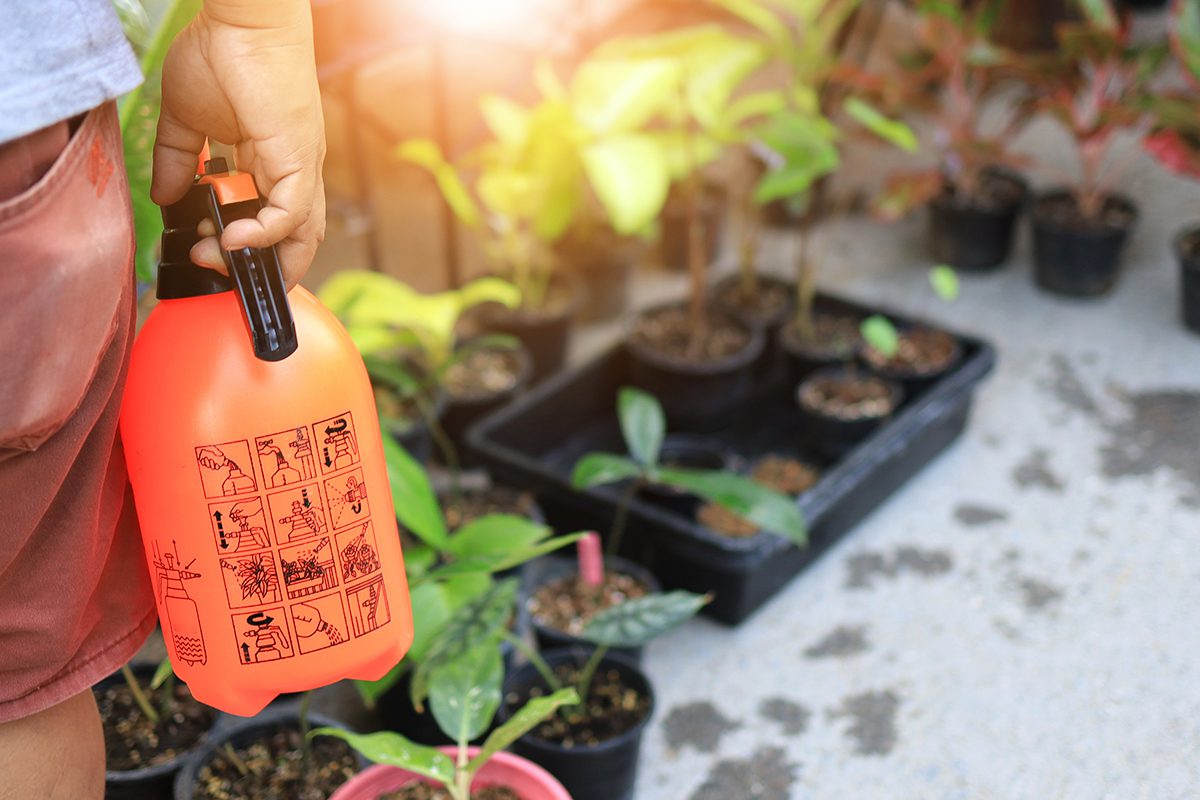
Table of Contents:
Unwanted weeds may pop up in your yard ranging from crabgrass, control dandelion, and more. This article discusses the different types of weed killers and the best weed killers of 2022.
We provide you a free home valuation and a breakdown of your closing costs to show you how much you will save and the amount of cash you will receive at closing
Or Call Us +1844-957-4247
Weeds can be unsightly, make your yard and walkway unkempt, and compete with your desirable plants for water, nutrients, and sunlight. There are several weed species and various weed killers to get rid of them.
When deciding to kill weeds, you will want to understand the type of weed you are trying to kill because it dictates at which stage of growth you apply weed killer, the impact on nearby plants, and how long the weed killer will work. Here are the key determinants to consider before buying weed killer.
Choosing the right weed killer for the job is crucial. Here are the five types of weed killers for lawns.
Contact weed killers work by killing the part of the plant that comes in contact with the weed spray. The entire process for using it can take a few hours or even days and is often used to kill annual weeds such as chickweed, crabgrass, and nettle, all easier weeds to kill than others.
Systemic weed killers kill the entire plant and its root system. It kills the whole plant from the bottom up as the weed killer is absorbed into the plant over several days to several weeks. This type of weed killer is better for hard-to-kill perennial weeds, including dandelion, poison ivy, and ragweed.
Residual weed killers remain after the initial weed killing to destroy “pre-emergent” weeds from growing again for around three to 12 months. This type of weed killer is effective but can also kill desirable plants surrounding weeds.
Selective weed killers are the best for lawns because they are designed to kill only weeds and not the favorable surrounding plants.
Non-selective weed killers destroy weeds along with any other nearby plants. They are best used for weeds coming through concrete cracks or fence lines, where other plants are not nearby.
Chemical weed killers are more common than natural ones and are more effective because they are stronger. Natural weed killers are made with citrus oil and vinegar and are non-toxic. They also tend to be non-selective, destroying all plants they touch, not just weeds. On the other hand, chemical weed killers are selective and tend to last several months to years.
Liquid/Spray is the most effective weed killer type. It comes in a bottle, and you spray plants directly with the solution. Some also come in the form of concentrates mixed before use, attached to a standard garden hose, and then sprayed.
Granular weed control is meant to cover large areas and is disbursed with a spreader. The product is mixed with dry fertilizer that kills weed as it fertilizes.
Emergence is when you apply the weed killer to the plant based on its growth stage. This term is often used with “pre-emergent” to kill weeds before they emerge. This weed killer destroys weeds before they come out of the soil. Alternatively, “post-emergent” weed killers, also labeled herbicides, kill weeds once they have emerged from the ground.
Many types of weeds grow for different lengths of time; some grow one time per year, throughout the year, or once every other year. Pre-emergent weed killers work best to keep seeds from growing for those that only grow once per year, also known as annuals. For those that grow throughout the year, perennials are easiest to kill with spray weed killers in the fall before they go into a dormant stage in the winter.
How long will the weed killer stay in the soil and continue to work? The longevity or persistence measures how long the weed killer will remain effective. Temporary weed killers degrade within a few days to weeks, so you must continuously reapply the weed killer. Longer-lasting weed killers kill from the root up, so they stay in the soil even as long as a year after it is applied. Unfortunately, this type of weed killer can also kill surrounding plants and keep desirable new plants from being able to grow in the soil, so be mindful of which kind of weed killer you select.
This list contains some of the best weed killers you will find on the market and includes a combination of natural and chemical weed killers at pre- and post-emergent stages.
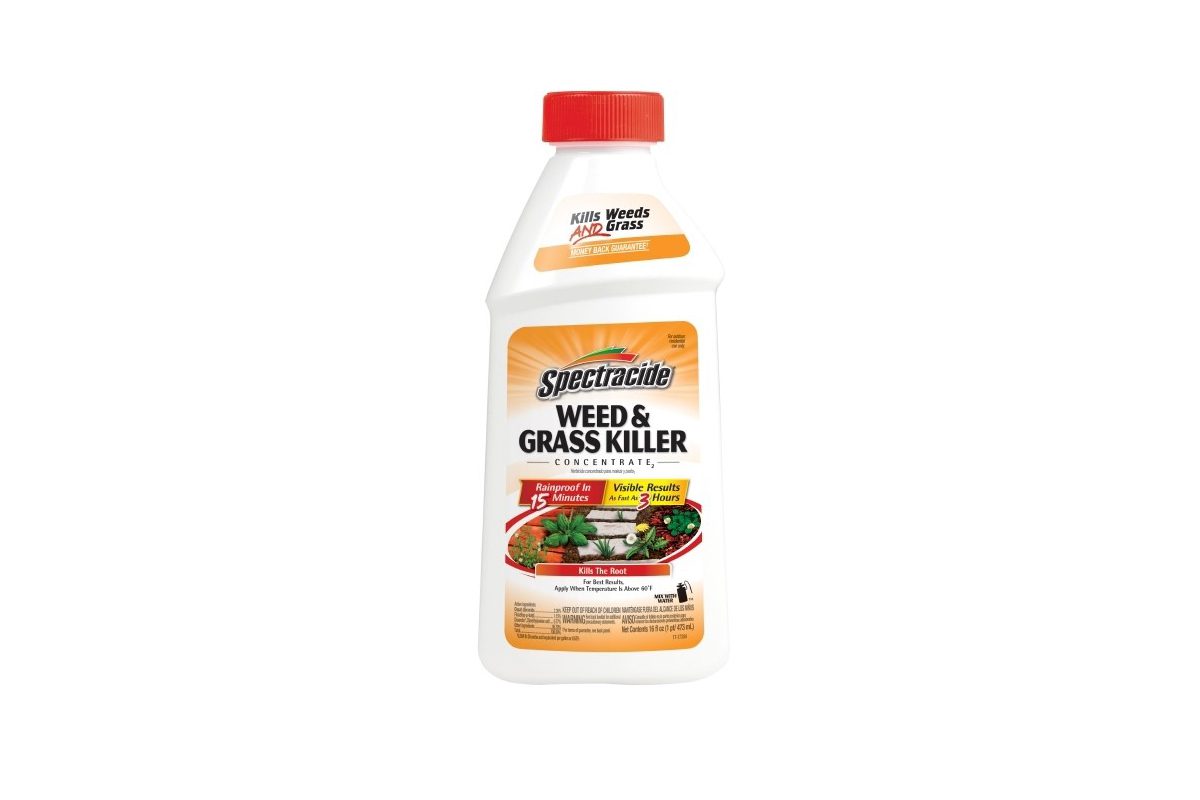

Spectracide is the best contact weed killer. It is fast-acting to eliminate weeds and other vegetation. You apply it by diluting ten tablespoons of the weed killer liquid to a gallon of water and use it with a tank sprayer. The product is fast acting within 24 hours, and you reapply it every seven days. It is suitable for all types of weed and grass, kills only what it comes into contact with, and is not affected by rain or watering. The solution, however, does not work as a preventative weed killer solution.
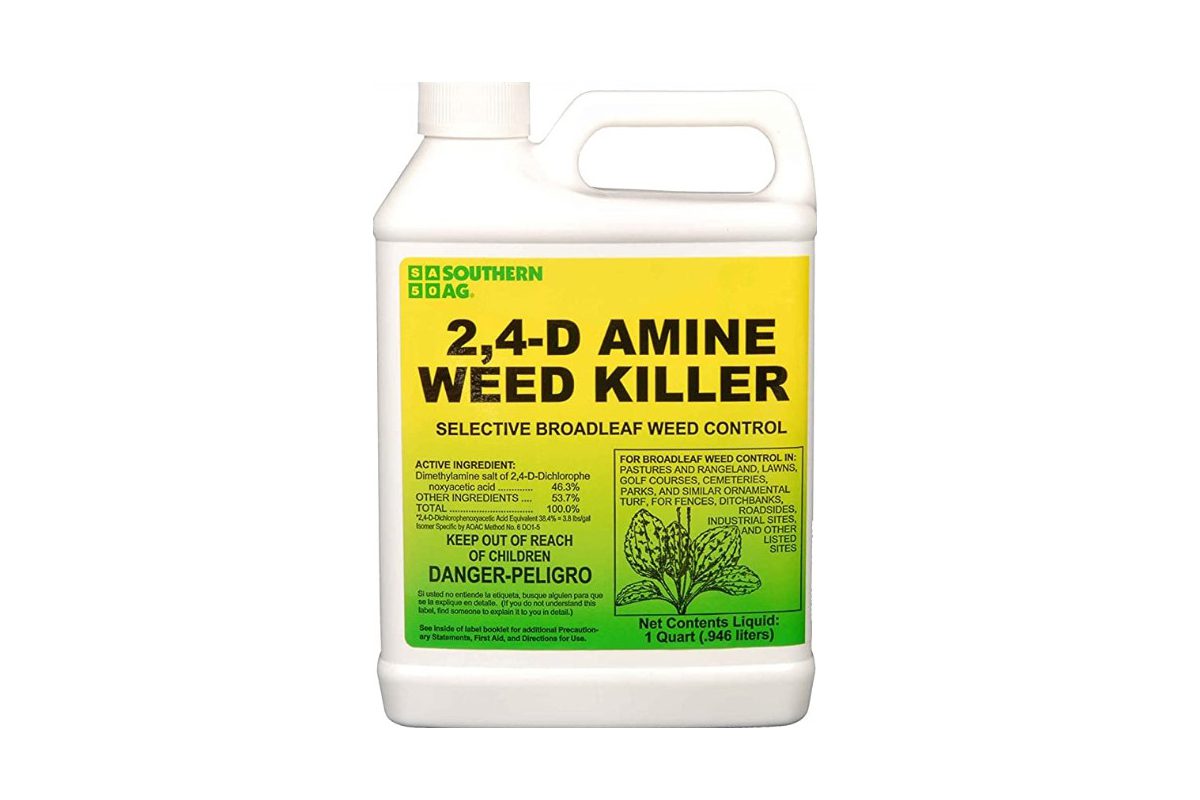

Southern Ag Amine 2,4-D Weed Killer is also a post-emergent weed killer and is number two on the list because it is a great selective weed killer. It is excellent at targeting weeds such as dandelions and chickweed but does not kill the surrounding plants, including grass. You apply the weed killer by diluting two or three tablespoons into three to five gallons of water and spray it with a hand-pump or hose sprayer. The weed killer is great for lawns, pastures, and fence lines and lasts six to 12 months.
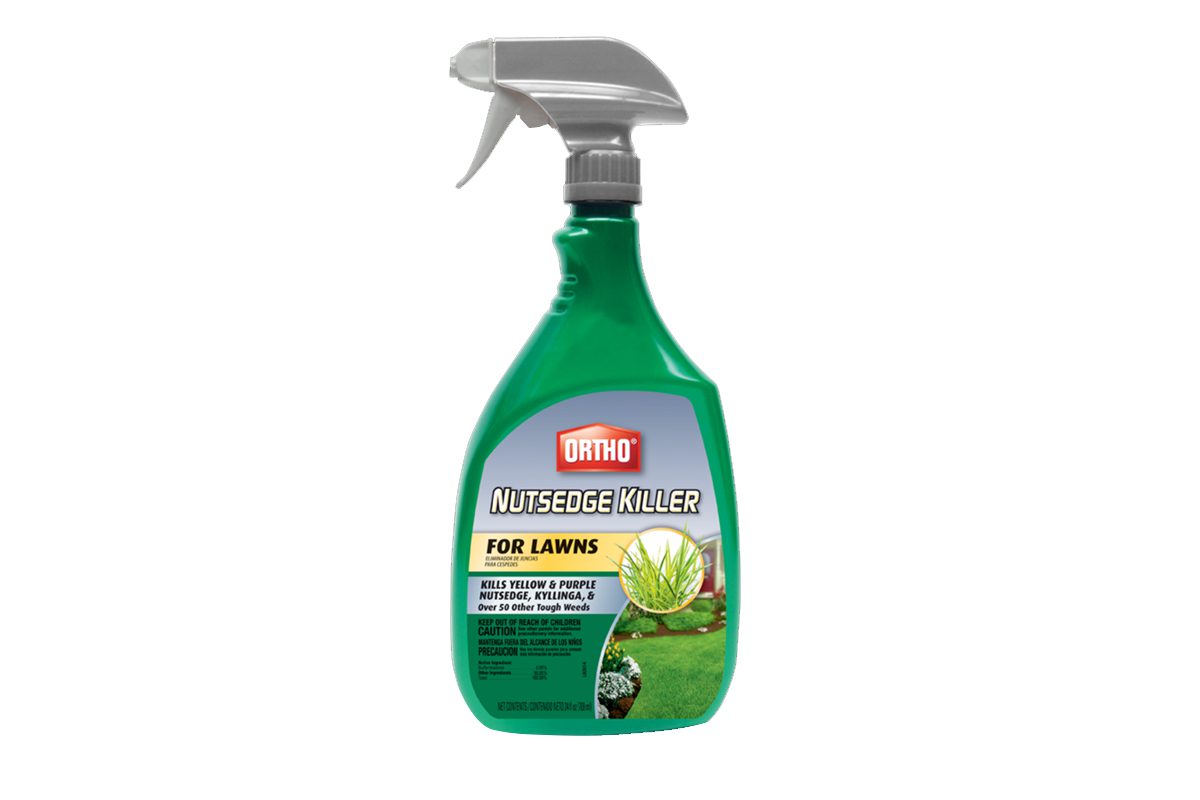

The best weed killer to destroy weeds systemically from the roots is Ortho Nutsedge. It is designed to deal with even the most difficult weeds to kill without destroying grass and nearby plants. The weed killer is applied with a hose sprayer and works within one to two weeks. It kills 50 types of weeds, can be reapplied every 30 days, and is rainproof for two hours. It is recommended, however, not to use over flowers or vegetables.
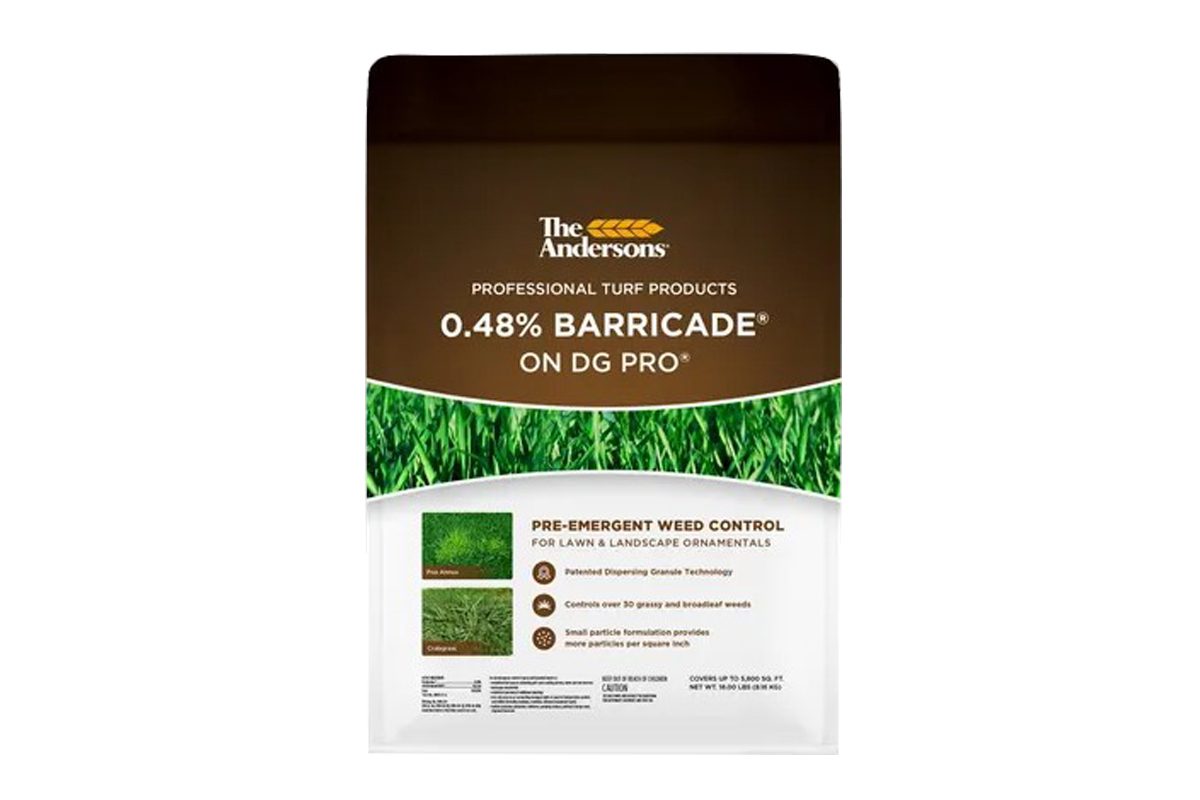

Get rid of weeds before they fully grow with the best pre-emergent weed killer, The Anderson Barricade. The weed killer destroys over 30 types of weeds without harming other nearby plants, including flowers, shrubs, vines, and trees. The granular weed killer is added to the soil or mulch and then watered to block weeds from growing for four to 12 months.
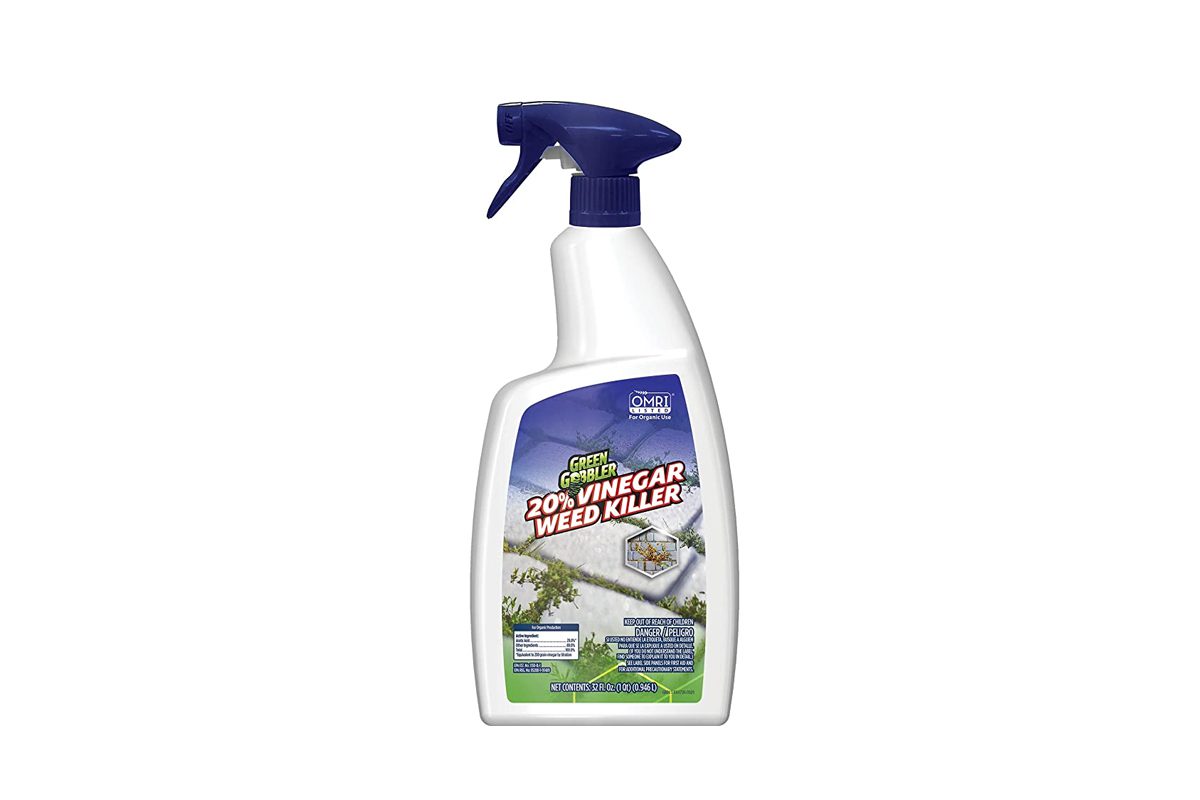

The Green Gobbler is an excellent post-emergent weed killer solution for existing weeds that won’t go away. The one-gallon bottle covers up to 1,200 square feet and is safe vinegar formula. It is fast acting and kills weeds within 24 hours. It is, however, non-specific so that it will kill all plants in the vicinity, so be mindful of where you spray. It also does not prevent weeds from growing.
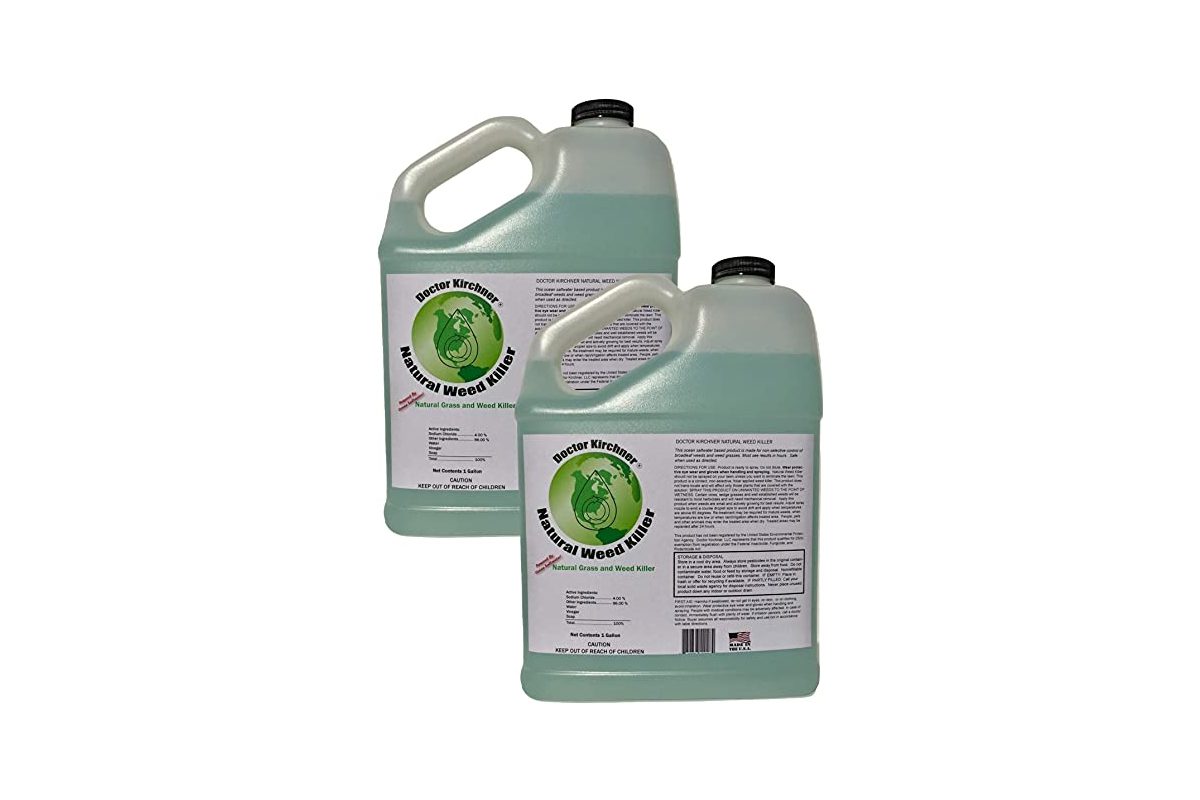

Doctor Kirchner contains ocean salt water, vinegar, and soap and is the best natural weed killer on the market this year. It comes in a 128-fluid-ounce container that is pre-mixed and is applied with a garden sprayer or spray bottle. The natural solution works best between weeds growing through pavers and sidewalks as it is non-selective and kills plants where you spray it. The weed killer works for 12 to 24 hours and is all-natural and safe for use around pets and children. Unfortunately, it is also more expensive than chemical weed killers.
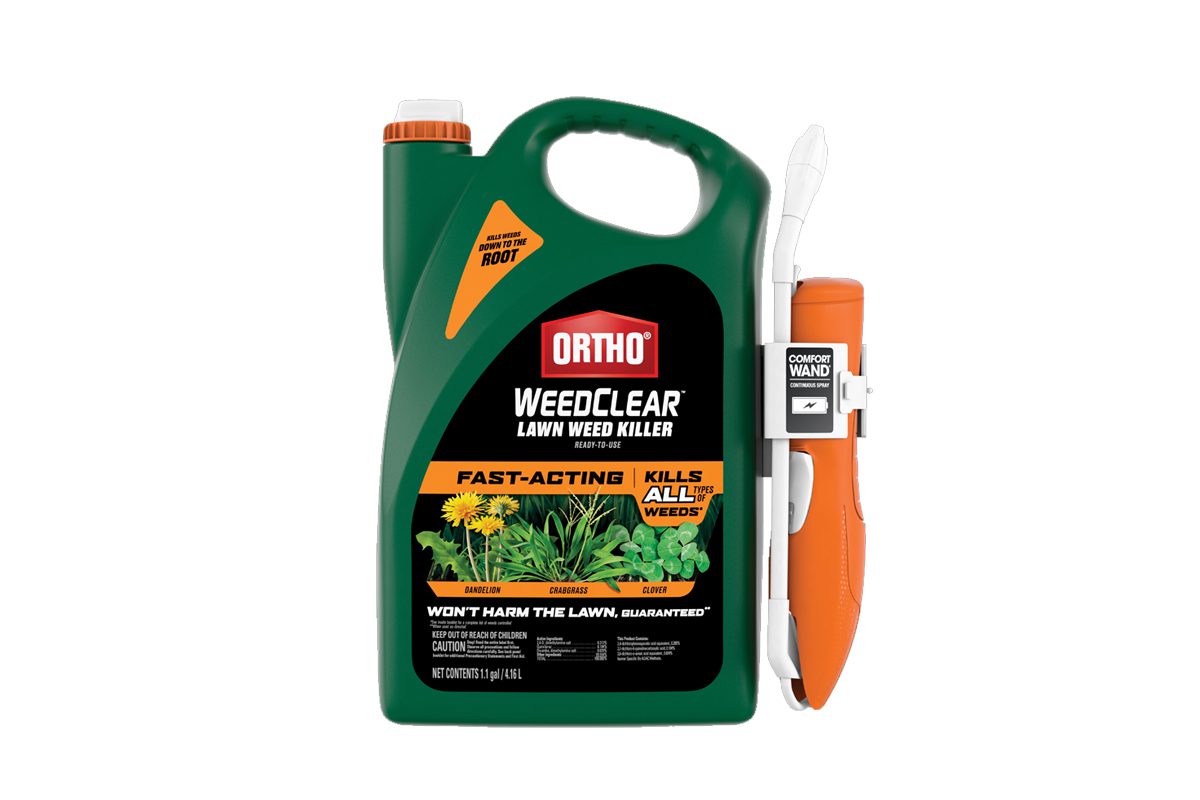

Ortho’s WeedClear ranks as the best weed killer for dandelions without destroying the grass, targeting dandelions and similar weeds such as chickweed, crabgrass, and clover. The weed killer comes in a 32-ounce bottle and is systemic, so it travels to a weed root system to kill it, so it does not regrow. WeedClear is applied after diluting the product in water and spraying it through your water hose. The best time of year to spread the weed killer is during the spring or fall, when the weeds are starting to grow. The weed destroyer is safe for lawn use, and the hose spray attachment is included.
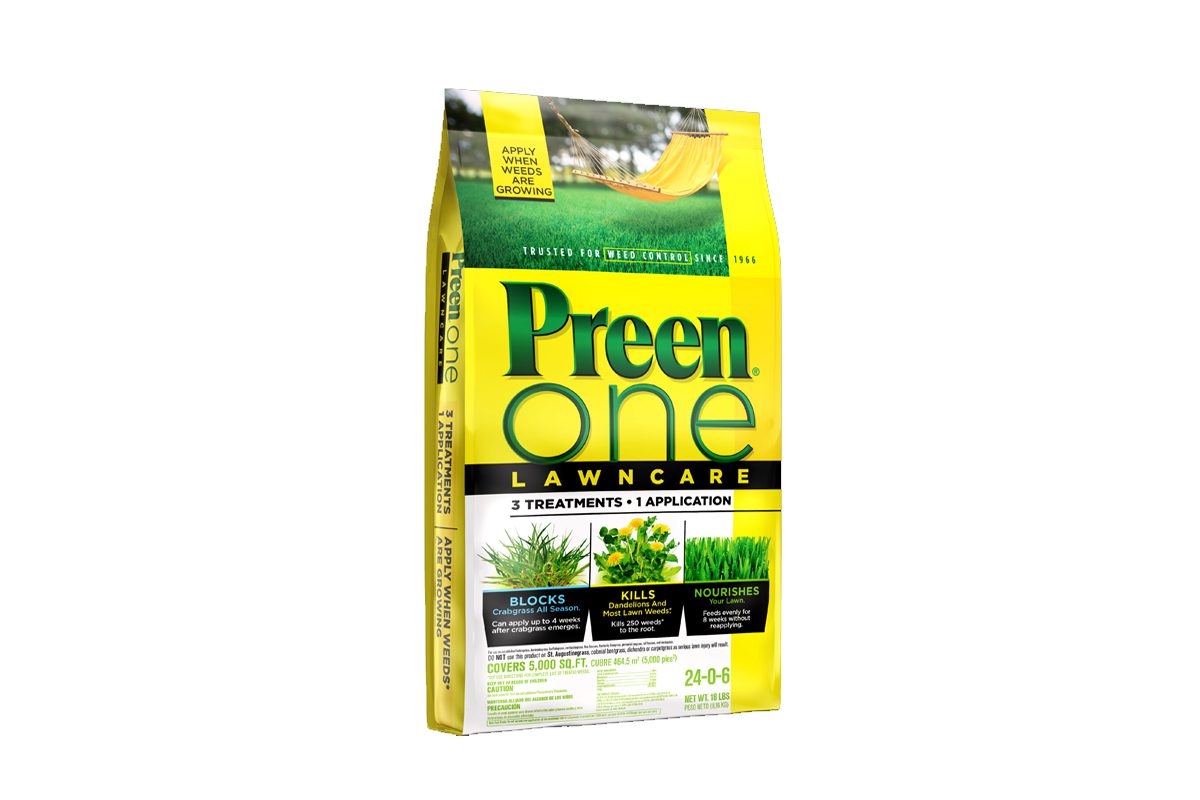

Preen Lawn is designed to kill crabgrass pre- and post-emergent. This weed killer has been sold since 1947 and suppresses weeds for up to four months. It is an excellent product for established lawns where crabgrass grows and is best applied in the spring or fall.
It’s time to buy smarter. Richr gives you cash back helping you buy the home of your dreams.
Call us now on 1-844-957-4247 or Start Searching Your Home Now!
Homemade weed killers can also be practical and were used long-before chemical and other natural weed killers entered the market. These are the most practical DIY weed killers.
Borax, also known as sodium borate, is a mineral found in the Mojave Desert and works well for killing weeds.
Salt found in your home can throw off the internal water balance in weeds and cause them to die when mixed with water to become a saline solution.
Vinegar is found in most natural weed killers, including the Natural Armor Weed and Grass Killer. However, the vinegar found in weed killers is more potent than the regular vinegar you keep in your home.
Dish soap, combined with other home ingredients, can kill weeds.
For pre-emergent weeds, The Andersons is at the top of the list for most yards. For best contact weed killer, Spectrcide is at the top of the list. For a more systemic solution, Southern Ag is the best.
Spectracide is the best contact weed killer. It is fast-acting to eliminate weeds and other vegetation.
Doctor Kirchner contains ocean salt water, vinegar, and soap and is the best natural weed killer on the market this year for use around children and pets.
Southern Ag Amine 2,4-D is a post-emergent weed killer. It is excellent at targeting weeds such as dandelions and chickweed but does not kill the surrounding plants, including grass. You apply the weed killer by diluting two or three tablespoons into three to five gallons of water and spray it with a hand-pump or hose sprayer. The weed killer is great for lawns, pastures, and fence lines and lasts six to 12 months.
Glyphosate is one of the most commonly used weed killers for agriculture. Farmers use this herbicide to kill weeds that compete with crops for sunlight, water, and soil nutrients.
Ranger Pro Herbicide has the most potent concentration of glyphosate.
Southern Ag Amine 2,4-D Weed Killer is one of the best weed killers for Bermuda grass.
The cheapest weed killer is DIY weed killer.
Wait at least two days after applying a weed killer before mowing. Then, wait and give the weed killer time to work before you water and wash it off or mow it off.
The best weed killer to destroy weeds systemically from the roots is Ortho Nutsedge. It is designed to deal with even the most difficult weeds to kill without destroying grass and nearby plants. The weed killer is applied with a hose sprayer and works within one to two weeks. It kills 50 types of weeds, can be reapplied every 30 days, and is rainproof for two hours. It is recommended, however, not to use over flowers or vegetables.
It’s time to buy smarter. Richr gives you cash back helping you buy the home of your dreams.
Call us now on 1-844-957-4247 or Start Searching Your Home Now!
Take the time to discover the types of weeds growing on your lawn to select the best weed killer. For pre-emergent weeds, The Andersons is at the top of the list for most yards. However, for post-emergent weeds, the Green Gobbler does the trick and is the top-rated weed killer in this category for 2022.
If you’re looking to buy or sell a house and would like to discuss your option, Richr can help you!
Our fully licensed Concierge Team is here to questions and provide free, objective advice on how to get the best outcome with your sale and purchase.
Ready to get started?
Call us now on 1-844-957-4247 or enter your basic info
below. Our concierge Team will be in touch shortly to help.
Remember, this service is 100% free and there’s never any obligation


If you want the Richr team to help you save thousands on your home just book a call.

